A king who came to save the world?”
“No. Oil that burned quite slowly.”
--Stephen Colbert & Jon Stewart singing “Can I interest you in Hanukkah?”
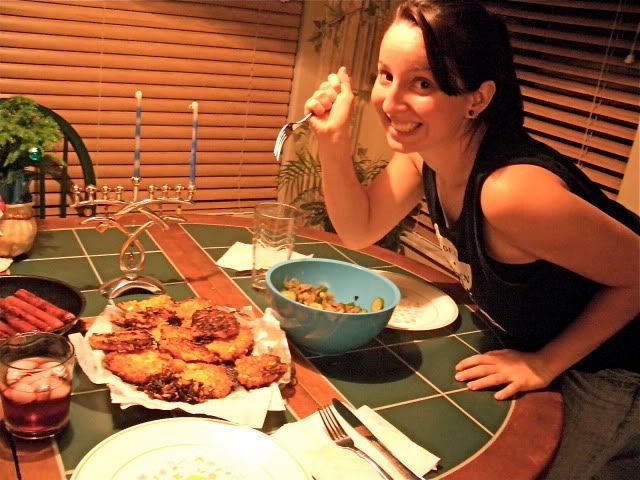
Fig. 1 My sister, hungry for Hanukkah
You gotta hand it to Christians. They really have a lot of pizazz in their holiday celebrations. Whatever it means to you, you can’t deny the jocularity of the Christmas season. Pageantry, singing, sparkling lights, tinsel, brightly colored presents and party costumes and dresses--it’s no wonder the English language has developed the expression “Gay as Christmas.”
The Jews, on the other hand, are comparatively “meh” about the old “sensible alternative to Christmas,” Hanukkah. That’s not to say they haven’t tried. I mean, eight days of presents certainly trumps one day, but it’s often described as an exercise in delayed satisfaction instead of a week of gift-giving bonanzas. The food is great, though! What’s more deliciously American than oil-soaked potatoes and jelly donuts? I’m surprised they don’t use that in their marketing campaign more often.
For me, celebrating Hanukkah has meant profoundly understanding every nuance in a finely-crafted jokes Jewish comedians make about it. The subtle but illustrative dropping of Yiddish terminology and references to the Maccabean battles of old have proven extremely hilarious in the right context. And I get stares from people who are obviously not Jewish “it-getters.”
Two years ago, I went menorah shopping in preparation of my upcoming Hanukkah festivities. Did you know that you could spend as much on a menorah as you do on a Christmas tree? They last longer though, and many become heirlooms, which certainly sticks with the Hanukkah theme of conservation. Can you imagine having the same artificial Christmas tree in your family for generations? Didn’t think so.
Menorahs are nowhere near as messy, though instead of kvetching about pine needles and preventing the dog from drinking the tree water, I had a festive time scraping melted candle wax off my mantel. A handy tip: to get the wax off the menorah itself, put it in the freezer for an hour, then chip off the frozen wax. Much easier on the lower back than hauling the tree into the attic.
The first time I insisted on giving Hanukkah a try, my family already had years of trained experience making latkes. My mom, the multi-talented cook who always loves trying new recipes from all walks of life, taught us the joys of shredding potatoes and squeezing out their copious amounts of water to make the pancakes stay in one piece in the pan. They are, by far, one of the greatest contributions to culinary art ever. Smothered with sour cream and chives (or applesauce, if you’re traditionally-minded) with a side of Hebrew Nationals and some carrot coins… oh baby. It gives you the energy for days worth of dreidel spinning.
We also challenged ourselves to giving eight gifts to each other every evening after lighting the candles. We were already bogged down with buying Christmas gifts, so they usually amounted to very small tokens involving inside jokes and edible treats. My dad, the creative one, came up with an unexpectedly complex plot to crush us with his gift-giving and storytelling prowess. At the time, I’m not sure he fully appreciated what he had gotten himself into, but I’m glad he did it.
Each night, sitting on the sofa in the living room, he revealed a small chapter of a Hanukkah story he had conjured, and each night he gave us something related to the story, much like how Kindergarten teachers use props to read children’s books to their students. It was a story about a young man with a magical “Gelt Horse” and a magical basket that filled up with coins every night so he could save enough money to marry a young lady. Dad gave us each a small plastic toy pony with a Star of David Sharpied onto its rump, then a small basket, then an increasing amount of golden Sacagawea dollars appeared in the baskets. They doubled every night. You can imagine that we ended up with a handsome sum when we ran out of candles.
Fig. 4 The purebred Gelt Horse
Best lesson in saving money EVER.
Thank you, Dad, for making your little girl’s first Hanukkah a memorable one.
As for the real reason people celebrate Hanukkah, its details are thought provoking in their outward mediocrity. Judah Maccabee led the Jewish revolt against the tyrannical Antiochus in Judea around 164 BCE. When the Maccabees took back control of the temple, they found only one day’s worth of the consecrated oil needed for daily ceremonies, but during the eight days it took to make more oil, the oil they had never burned out. The story was considered too recent and inconsequential at the time of compiling the Jewish testament, so it didn’t make the final edit. Hanukkah as a commemoration ranks as a minor holiday compared to Pesach (Passover) or Yom Kippur.
So why has it risen to the rank of the most popularly known of Jewish holidays (in America, at least)? The tradition of gift-giving and the focus on childhood activities may have been installed to give the holiday more chutzpah and a means of Jewish immigrants to assimilate into American culture during the country’s nation-building era. But as Jon Stewart tends to say regarding his own interfaith family’s holiday observations, “Christmas blows the doors off of Hanukkah.”
Fig. 5 Even our dog Harmon got into the spirit
Most fascinating to me, though, is how each traditional image we associate with Hanukkah still steadfastly embodies reference to the Maccabbean story. The dreidel, something so innocuous and seemingly random, has the Hebrew letters Nun, Hay, Gimel, Shin, which stands for the Hebrew phrase: “Nes Gadol Haya Sham” (A Great Miracle Happened There”), referring to the miracle of the eight-day oil. The nine-armed menorah (as opposed to the ancient traditional seven-armed menorah) is actually called a Hanukkiah (related to the Hebrew word for “to dedicate”), denoting its use as a lamp for “dedicating” the new temple that Judah had captured from Antiochus.
Hanukkah, as a minor holiday, is simply not built to be the kind of all-encompassing epic celebration of anything as world changing as a messiah coming to Earth, which is part of the reason why it’s got flyweight muscle in the pop culture match between it and that heavyweight champion, Christmas. Hanukkah basically had the unfortunate luck of occurring adjacent to Christmastime and is compared to Jesus’ birthday by virtue of proximity, which is totally fakakta.
Hanukkah was designed for something else entirely. It’s a small holiday that has, in the grand history of things, made the others still possible. Hanukkah commemorates the little miracles that make all the difference. Little miracles like oil-fried latkes with sour cream. Mmmm.


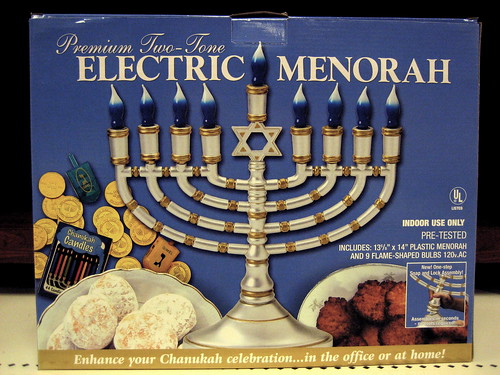
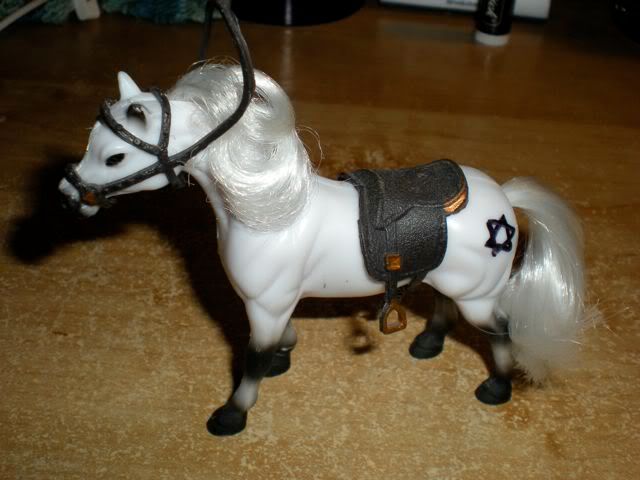
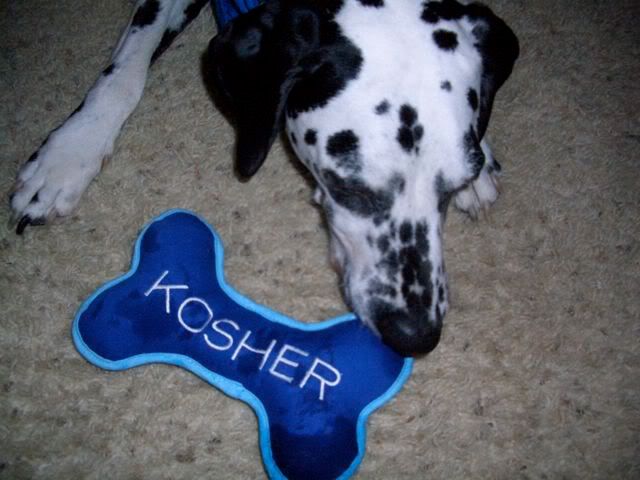
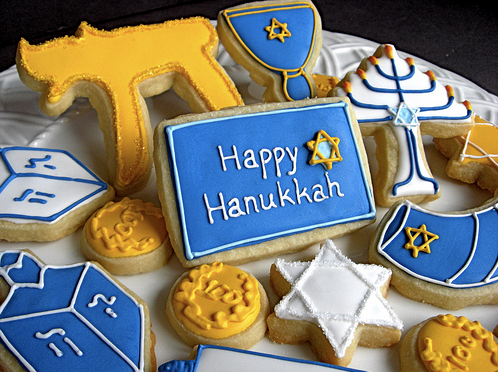






No comments:
Post a Comment
You're welcome to comment. Just keep in mind this is a personal as well as an academic blog and I like to see thoughtful, respectful commentary. No offensive language or curt replies, please :)